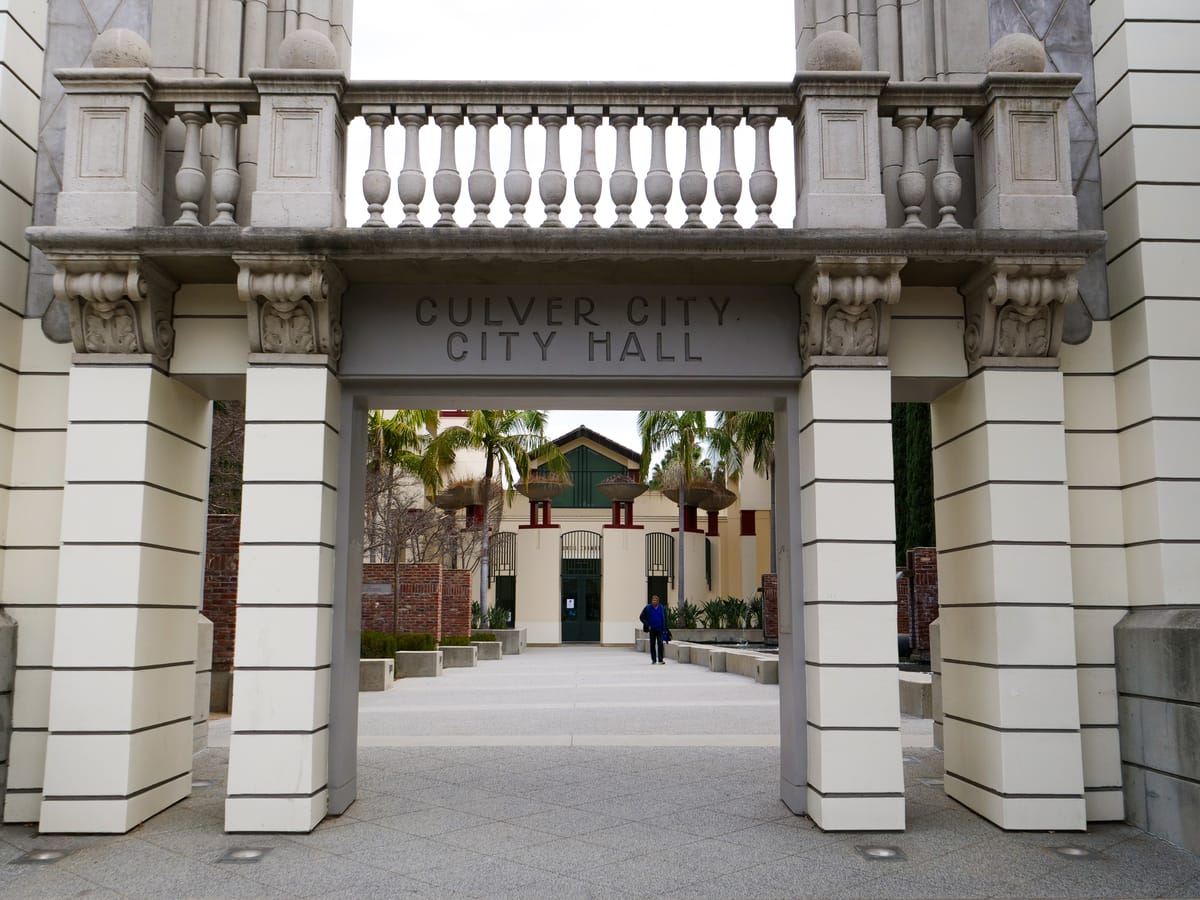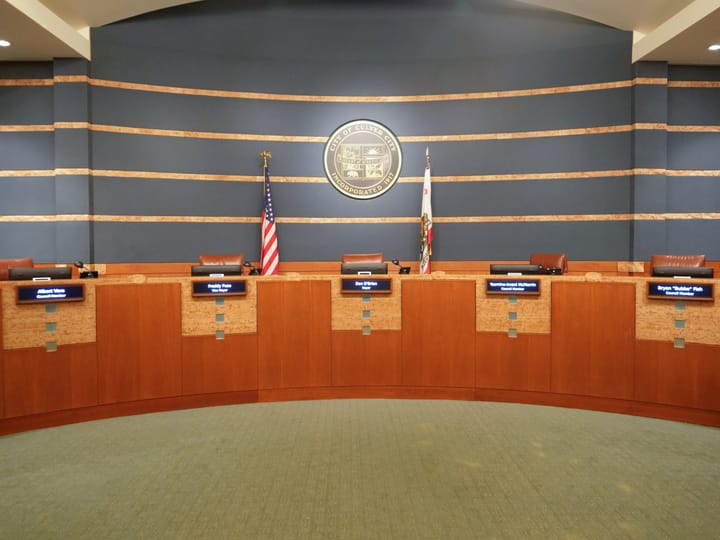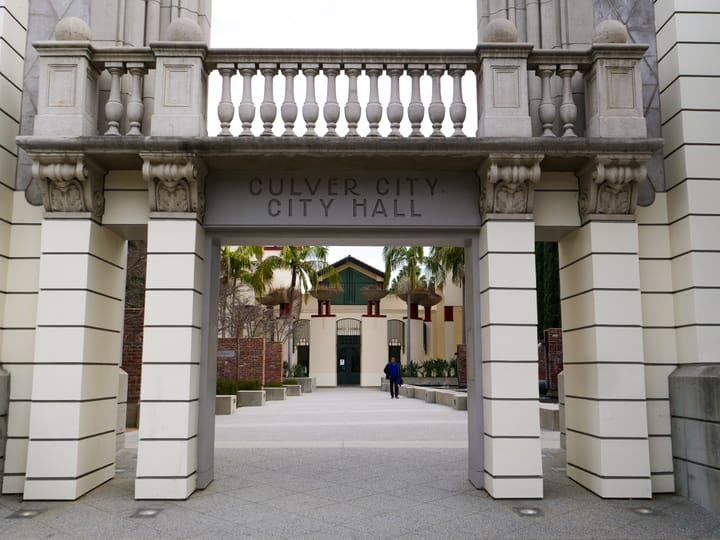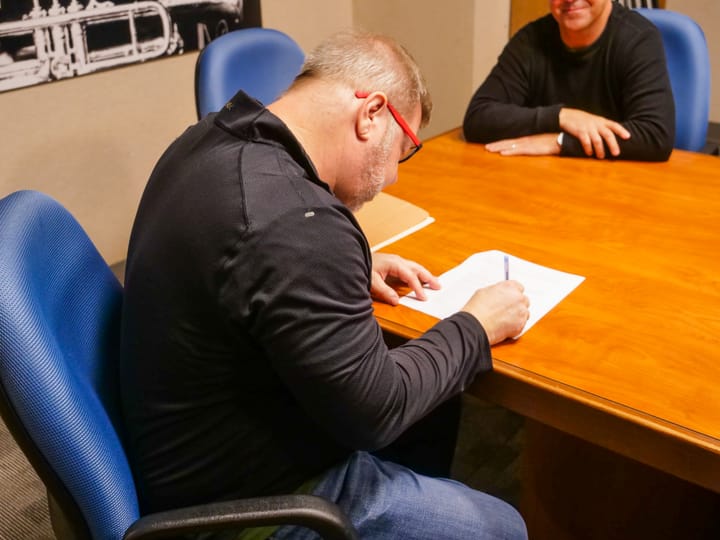City to explore Civic Assemblies to increase civic engagement
The method involves creating a facilitated body of citizens to provide formal recommendations to the city council on Culver City's budget.

EDITOR'S NOTE: A previous version of this story stated Michelle Dennis presented to the council on behalf of Healthy Democracy. This story has been corrected to reflect that Dennis presented on behalf of firm Public Democracy L.A. We apologize for any inconvenience this may have caused.
Culver City residents may have an opportunity to engage further in the city's budget process.
At its meeting Monday night, the Culver City City Council directed staff to begin preparing to present to the council firms or organizations that could guide the creation of a Civic Assembly to provide formal input on the city's budget. This process includes creating an advisory body from a semi-random, demographically representative group of residents to develop official recommendations through a formal deliberation process, which are presented to the city council for consideration.
This is a continuation of an effort spearheaded by Councilmember Bubba Fish to increase formal citizen involvement in the annual formulation of the city's operating budget. He recalled his experience on the campaign trail, listening to the hopes and needs of the community, and felt those voices were still missing despite the city's significant strides in educating constituents about its budget.
"As our population grows, I think it is going to be more important than ever that residents have a seat at the table," Fish said.
Civic Assemblies were presented as the primary tool for expanding on the input residents can provide on the budget by firm Public Democracy L.A. at Monday's meeting. As a relatively new concept, there are few firms with experience in the civic assembly model, with nonprofit Healthy Democracy the only one to have conducted multiple assemblies for local governments to date.
According to the presentation made by retired UCLA Luskin School of Public Affairs Policy Lecturer Michelle Dennis on behalf of Public Democracy L.A., the only other firm to have conducted a civic assembly for local government is Unify America, who has only done it a single time.
Remembering a time when she felt her voice wasn't heard on civic issues, councilmember Yasmine-Imani McMorrin emphasized her commitment to making these discussions more accessible for all residents.
"It is incredibly important to me to think about whose voice is not in the room when we are hearing items," McMorrin said, "and what we are doing to make sure that we are making our spaces as comfortable as possible to be a part of them."
A Request for Proposal (RFP) — which allows outside contractors to make bids for projects and other opportunities issued by the city — is not required to enlist an organization for professional services. Fish argued that an RFP process would take away time for participants to experience and critique the current process, which he felt was necessary for determining what needed improvement.
Citing their experience, McMorrin also felt comfortable forgoing the competitive bidding process for Healthy Democracy. Fish was amenable to the RFP if it allowed initial participants to analyze the current budget process, and Culver City CFO Lisa Soghor said the city could present something by the first city council meeting of 2026.
"We have done RFPs on very tight turnaround," Soghor said.
However, the lottery process used to select Assembly members takes time to play out fully, and compressing it to the extent required to meet the RFP timeline would compromise its effectiveness.
"We would not typically do that in four to six weeks," Healthy Democracy Program Director Justin Reedy said of the civic lottery. "It usually takes a couple of months to prepare."
Mayor Dan O'Brien was in favor of an RFP process, saying he did not want to restrict the methods or the potential firms that could present them from being considered.
"They may be more experienced in this specific niche of community input," O'Brien said, "but that doesn't mean we can't get proposals from others."
Perception of a potential conflict of interest stemming from the endorsement of Fish in the 2024 city council race by Dennis, who presented the civic assemblies concept to the council and the Standing Governance Subcommittee in July. While Dennis does not have any financial ties to Healthy Democracy or Public Democracy L.A., O'Brien was concerned about the perception of bias should the city forgo a competitive process.
Asking for a competitive price quote rather than a full RFP was a compromise Puza suggested. This would expedite the outreach process even further, allowing staff to return to the council with options as early as the next city council meeting.
A $250,000 allocation has already been included in the budget for this purpose, the estimate from Healthy Democracy to conduct a civil assembly in Culver City. That money was set aside on the condition that it be returned to the General Fund if the council decides not to move forward, and Puza requested that the initial allocation serve as the cap for spending on this item.
Paying such a large amount to a company to provide ideas to the city council was unsettling to councilmember Albert Vera. He also argued in favor of an RFP after confirming with Culver City CFO Lisa Soghor that it was the city's practice for large expenditures, but felt that this undertaking as a whole was entirely unnecessary.
Instead of spending additional funds, Mayor Dan O'Brien proposed leveraging the capabilities of existing commissions, such as the Finance Advisory Committee, to increase resident involvement in the budget process.
Opportunities for residents to provide input are aplenty in the current process, Vera argued, and O'Brien highlighted the significant outreach done for the budget and informational workshops associated with it.
"I wish I could say we had an outpouring of questions," Soghor said regarding the results of this outreach. "We did not."
Vera also expressed his concern that this process was being used as a vehicle for a more nefarious purpose.
"Ultimately, my colleagues have no problems saying the police budget is [the city's biggest expenditure]," Vera said. "It worries me that recommendations are going to come for defunding, plain and simple."
Recommendations from civic assemblies would not be binding, as they would serve as an advisory committee. Vice Mayor Freddy Puza was intrigued about the potential of civic assemblies to help address the political polarization that has emerged in the city, but was concerned about the potential consequences of rejecting recommendations.
"We don't want people to be deflated," Puza said, "[when] we just invested all of this time, money, and energy into them."
A scenario where a council entirely dismisses the recommendations of a civic assembly is improbable, according to Reedy.
"Usually, what is produced by these panels of a microcosm of the community is really solid recommendations that come from the heart and soul of the community," Reedy said.
"These people take this very seriously, spend a lot of time and energy investing in this to try and come up with solutions that are feasible for the city."
The motion to conduct a competitive price quote process for the development of a Civic Assembly passed 3-2, with Vera and O'Brien dissenting. The results of the competitive price quote will be discussed and considered at the city council's next regularly scheduled meeting on Nov. 10.




Comments ()